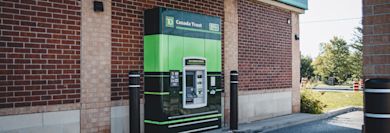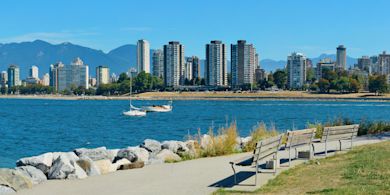- News and articles
- Find usIDP AustraliaIDP BahrainIDP BangladeshIDP CambodiaIDP CanadaIDP ChinaIDP EgyptIDP GhanaIDP Hong KongIDP IndiaIDP IndonesiaIDP IranIDP JordanIDP KenyaIDP KoreaIDP KuwaitIDP LebanonIDP MalaysiaIDP MauritiusIDP Middle EastIDP NepalIDP New ZealandIDP NigeriaIDP OmanIDP PakistanIDP PhilippinesIDP Saudi ArabiaIDP SingaporeIDP Sri LankaIDP Taiwan, ChinaIDP ThailandIDP TurkeyIDP UAEIDP VietnamIDP Corporate
- Social
- English
Topics covered
Canada is an ideal study destination for students as it is a lively and welcoming country with fantastic universities and schools, but it is important to be prepared for the Canadian lifestyle and climate.
Packing for your trip
Always remember to pack your basic layers such as jumpers, jeans, long-sleeve tops, t-shirts and anything else you wear on a day-to-day basis as you can wear them indoors, in the warmer months or under your clothing in winter months.
A scarf and a beanie will go a long way to keeping you warm, but don't forget gloves! Pockets can only keep your hands so warm, so you might want to invest in a pair that you can use your smart phone with as it will be a pain to keep taking your gloves off to use your phone in cold weather.
Pack a portable charger the cold weather can really mess with your phone battery! You might want to pack an international adaptor for when you first arrive, but I found buying a plug with a couple of USB ports with the American prongs was better for charging my phone and other devices as they are less bulky and easier to carry around. Save the international adaptors for things you can't interchange or don't have a USB cord for like a laptop charger.
Preparing for the Canadian climate
Buy your hardcore winter gear in Canada. Winter gear is way more expensive in warmer countries and you get a lot more variety overseas. Also, if you're arriving in the winter semester there'll be boxing day sales, which is even better!
It's important to own a good winter coat. A decent winter coat will be essential to survive the colder months, and it'll probably be at least CA Dollars 150 for a semi-decent one. Paying more for a good quality coat can get expensive but it's worth it.
A pair of snow boots is also important for when it's snowy or slushy, and you need something that's waterproof and with good grip. There's nothing worse than cold and wet feet!
You can get away with good sturdy waterproof boots (if you already have them) and a bunch of thermal socks. Make sure you steer clear of shoes that don't have enough grip such as Doc Martins, you'll be slipping everywhere.
If you don't own waterproof boots, then you're better off buying a pair after you arrive as they will have a variety of waterproof shoes specific to the Canadian climate.
You might see some people walking around in runners but they're probably Canadian and have developed a tolerance to cold weather or are crazy!
Exploring your surroundings
First thing you should do is figure out where all the important things are like shops, pharmacy, laundromat and your local 'dep' short for depanneur, the French-Canadian version of a corner store and most are open 24/7 or until late.
It's important to orient yourself to your area, and nothing makes you feel more like home than grocery shopping.
Don't be afraid of the cold weather, unless there's a storm outside, so make sure you get out and explore what the city has to offer. The cold doesn't stop the winter-resistant Canadians and it shouldn't stop you!
If you've got a good coat, shoes and thermals, then you should be ready to explore. Often there are heaps of events in winter like Christmas markets and ice-skating rinks.
If you're afraid of the cold, or not quite ready to jump headfirst into winter, there are also indoor options. For example, in Montreal there's Underground City, which is an underground network of restaurants, shops and entertainment venues that you walk from place to place. Though it can get a bit confusing sometimes, it's an adventure for sure.
There's also heaps of cafés and stores near your campus or home that you can step into to escape the Canadian cold, and who knows, you might find a little hidden gem while you're there.
Getting ready to start University
Make sure you tour your campus to get used to the layout and all the main buildings like library, admin offices and health services.
I always find that checking out where I need to go for my classes will alleviate some of the stress of the first day. And you're going to remember how to get there better if you find your own way instead of vaguely walking past it on a tour.
Figure out where the study nooks and libraries are, maybe there's a cute café or two nearby that's perfect for studying or a break between lectures. Chances are you'll be spending a lot of time at or around campus so why not find the best places there?
Go to the meet and greets, often they'll be set up for international or exchange students and it's a good way to meet people in the same position as you they're new to the city and ready to make friends.
Also, it can be a great idea to get involved with student clubs, they'll organise events where you can meet like-minded people, and some will even organise trips to go on an explore surrounding areas.
One account for all your study abroad needs
Create your profile and unlock a wide array of features including personalised recommendations, fast-tracked applications and much more.
Search for articles
Dive into our extensive collection of articles by using our comprehensive topic search tool.















